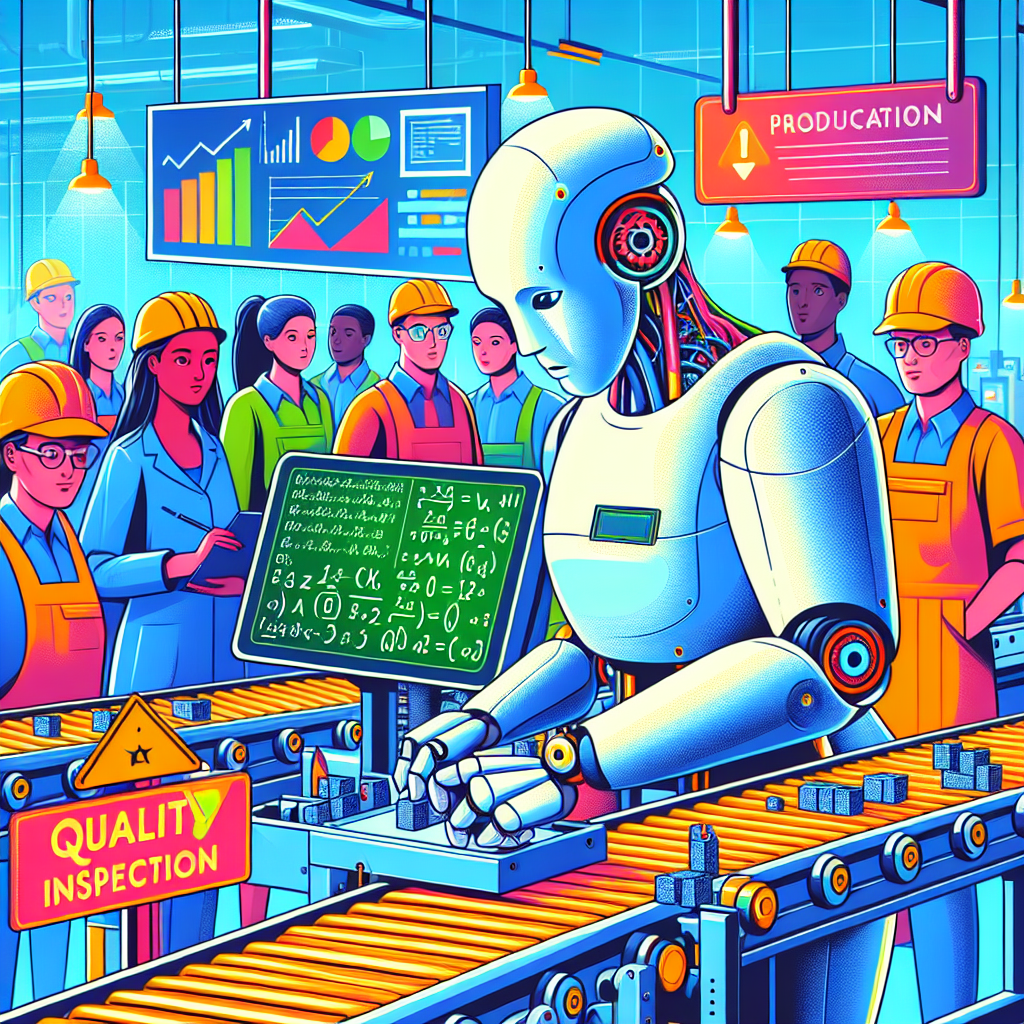Artificial Intelligence (AI) has been revolutionizing various industries in recent years, and manufacturing is no exception. One of the most significant advancements in manufacturing is the use of AI-powered quality inspection systems. These systems utilize machine learning algorithms to automate and improve the inspection process, resulting in higher accuracy, efficiency, and cost savings for manufacturers. In this article, we will explore the benefits of AI-powered quality inspection in manufacturing and discuss how it is transforming the industry.
1. Improved Accuracy
One of the key benefits of AI-powered quality inspection is the improved accuracy it provides. Traditional inspection methods are prone to human error, leading to inconsistencies and missed defects. AI-powered systems, on the other hand, can analyze vast amounts of data quickly and accurately, detecting even the smallest defects that may be missed by human inspectors. This results in higher-quality products and reduces the likelihood of defects reaching customers.
2. Increased Efficiency
AI-powered quality inspection systems can inspect products at a much faster rate than human inspectors. This increased efficiency allows manufacturers to identify defects earlier in the production process, reducing rework and scrap costs. Additionally, AI-powered systems can operate 24/7, providing continuous monitoring of production lines and ensuring consistent quality throughout the manufacturing process. This increased efficiency ultimately leads to higher productivity and lower costs for manufacturers.
3. Cost Savings
By improving accuracy and efficiency, AI-powered quality inspection systems can result in significant cost savings for manufacturers. By reducing defects and rework, manufacturers can save money on materials and labor costs. Additionally, AI-powered systems can help prevent costly product recalls by identifying defects before products reach the market. Overall, the cost savings associated with AI-powered quality inspection systems can have a positive impact on a manufacturer’s bottom line.
4. Predictive Maintenance
In addition to inspecting products for defects, AI-powered quality inspection systems can also be used for predictive maintenance. By analyzing data from sensors and other sources, AI algorithms can predict when equipment is likely to fail and schedule maintenance before a breakdown occurs. This proactive approach to maintenance can help manufacturers avoid costly downtime and maximize the lifespan of their equipment.
5. Data Analysis
AI-powered quality inspection systems generate a wealth of data that can be used to improve manufacturing processes. By analyzing this data, manufacturers can identify trends, optimize production parameters, and make data-driven decisions to improve quality and efficiency. This data analysis can provide valuable insights that can help manufacturers continuously improve their processes and stay competitive in the market.
FAQs:
1. How do AI-powered quality inspection systems work?
AI-powered quality inspection systems use machine learning algorithms to analyze images, videos, and sensor data to detect defects in products. These algorithms are trained on large datasets of labeled images to learn what defects look like and how to identify them. Once trained, the system can automatically inspect products for defects with a high level of accuracy.
2. What types of defects can AI-powered quality inspection systems detect?
AI-powered quality inspection systems can detect a wide range of defects, including scratches, dents, cracks, misalignments, discolorations, and more. These systems can be customized to detect specific defects based on the requirements of the manufacturer and the product being inspected.
3. Are AI-powered quality inspection systems expensive to implement?
While AI-powered quality inspection systems can require an initial investment, the cost savings and benefits they provide often outweigh the upfront costs. Additionally, there are now many affordable options available for manufacturers of all sizes, making AI-powered quality inspection systems accessible to a wide range of companies.
In conclusion, AI-powered quality inspection systems are transforming the manufacturing industry by improving accuracy, efficiency, and cost savings. These systems provide manufacturers with the ability to detect defects quickly and accurately, leading to higher-quality products and reduced costs. By harnessing the power of AI, manufacturers can stay competitive in the market and continuously improve their processes to meet the demands of today’s consumers.

